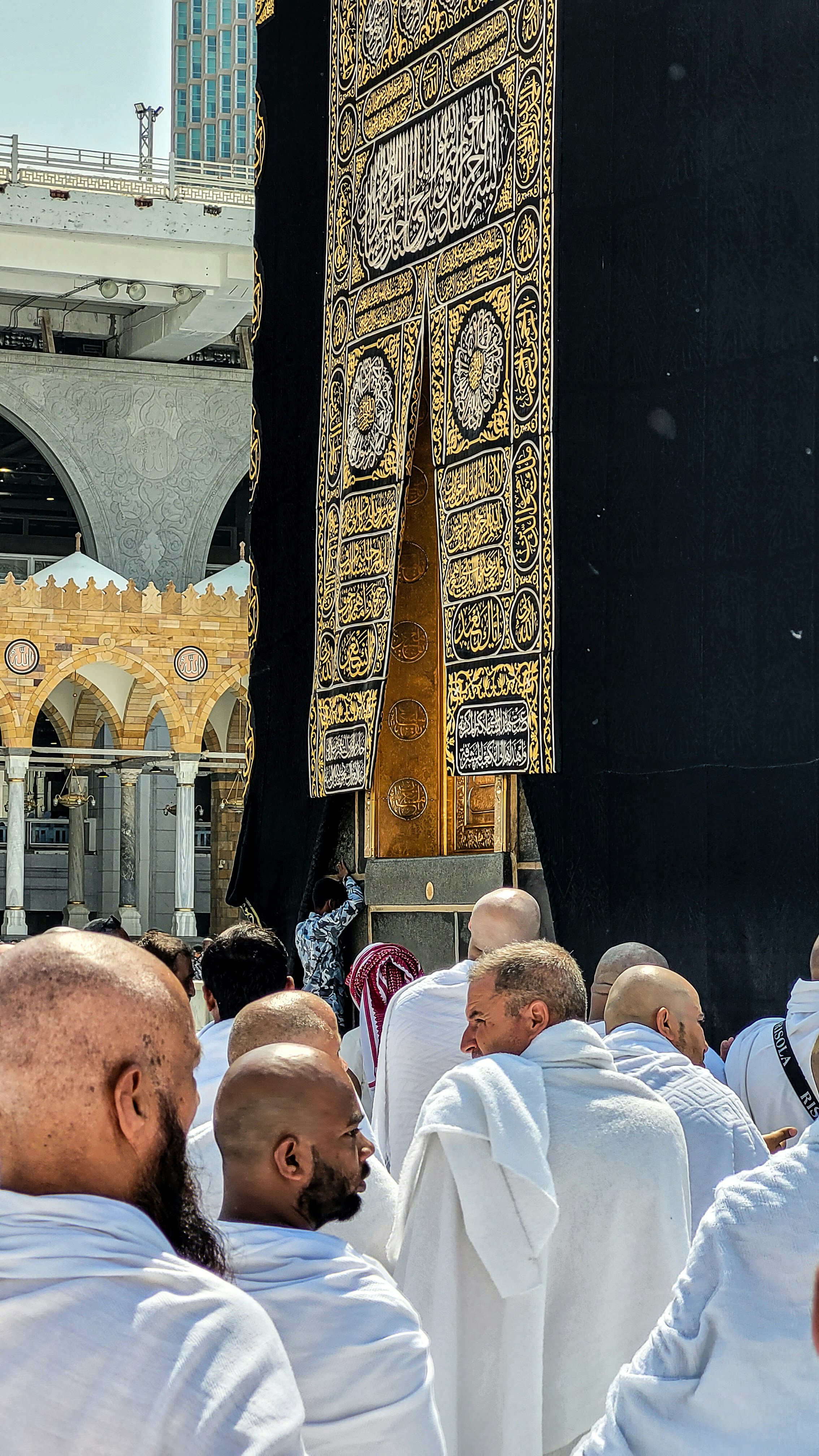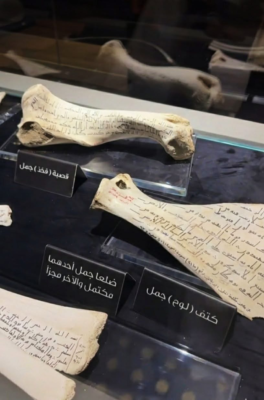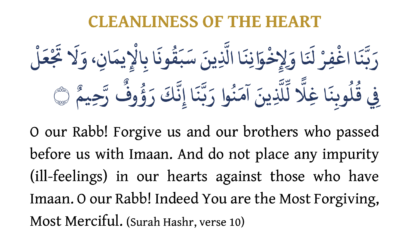
Hajj Mabrur significance : The Essence of Acceptance
Among the many sacred journeys a believer undertakes in their life, none hold as much significance, reward, and spiritual elevation as Hajj. It is a physical, emotional, and spiritual departure from the comforts of the dunya into the court of Allah, where each footstep is weighed, each tear witnessed, and every sincere intention counted.
Narrated by Aisha (رضي الله عنها):
She said, “O Messenger of Allah, we see Jihad as the best deed. Should we not then strive in Jihad?”
He replied, “The best Jihad for women is Hajj Mabrur.”
(Sahih Bukhari)
What a beautiful gift Allah has granted to women! While they may not fight on the battlefield, they are honored with a spiritual struggle of their own — Hajj Mabrur, a Hajj that is sincere, accepted, and rewarded with nothing less than Jannah.
Understanding the Difference Between Hajj and Umrah
What is Hajj Mabrur?
The word “Mabrur” comes from “birr”, which means righteousness, sincerity, and obedience. Thus, Hajj Mabrur is not merely about rituals — it is about purity of intention, excellence of character, and abandonment of sins.
SubhanAllah — such simplicity in words, yet so deep in meaning. A Hajj accepted by Allah is one where the heart softens, pride diminishes, and compassion overflows. Imam An-Nawawi explains that Hajj Mabrur is the one free from sins, while Al-Qurtubi mentions that all the scholarly explanations boil down to the same essence: a Hajj performed sincerely, perfectly, and with good conduct.
The essence of Hajj Mabrur lies in the intentions and purity of actions, reflecting a level of sincerity in the heart of the pilgrim. In essence, it is not merely the act of performing Hajj that counts but the degree of devotion and the purity of the intentions behind it. This intricately woven notion emphasizes that one’s approach towards the pilgrimage should be deeply rooted in the quest for spiritual elevation and divine acceptance.
The scholars of Islam agree that an accepted pilgrimage is characterized by specific qualities, such as selflessness, humility, and a resolute commitment to piety. According to authentic sources in Islamic studies, the Prophet Muhammad (peace be upon him) stated that “the reward for Hajj Mabrur is nothing less than Paradise.” This declaration underscores the immense spiritual rewards awaiting those who successfully fulfill the obligations of Hajj with genuine intent. The authenticity of this concept further aligns itself with various hadith and Qur’anic verses, reinforcing the belief that Hajj is not merely a physical journey but a comprehensive spiritual transformation.
Intention is paramount; it is the interplay of a pure heart and honest aspiration that distinguishes between a mere pilgrimage and one that is deemed Mabrur. Pilgrims are encouraged to approach their journey with a mindset focused on repentance, self-improvement, and a yearning for closeness to Allah. The overall spiritual significance of Hajj Mabrur is to serve as a reminder that the pilgrimage embodies a lifelong commitment to faith, transcending the physical dimensions and entering the realm of spiritual fulfillment.
Virtues of Hajj Mabrur
The merits of Hajj Mabrur are beyond imagination. Every step taken toward Makkah, every sincere tear shed in Arafah, every heartfelt du’a whispered — they carry immense rewards.
1. Sins Are Washed Away
“Whoever performs Hajj and does not commit any obscenity or transgression will return as free from sins as on the day his mother gave birth to him.”
(Bukhari)Sometimes a short pause to remember Allah brings clarity and steadiness back into our day. These reflections are simple reminders from my own journey.
Is there any gift greater than returning home with a soul cleaner than ever before?
2. Hajj Obliterates What Came Before
“Hajj Mabrur obliterates what came before it.”
(Muslim)
Imagine decades of mistakes, forgotten sins, and shortcomings — all forgiven in one journey.
3. Your Spending is Multiplied
“The spending during Hajj is like spending in the cause of Allah — multiplied seven hundred times.”
(Ahmad)
Every riyal or rupee spent on this journey is an investment for your akhirah.
4. You Are Allah’s Honored Guest
“The guests of Allah are three: the fighter in His cause, the pilgrim, and the Mu’tamir (Umrah performer).”
(An-Nasa’i)
The Most Generous Host will never let His guests leave empty-handed. Their du’as are answered, and their sins are forgiven.
The Journey of Hajj: A Spiritual Obligation

The pilgrimage of Hajj is undertaken by millions of Muslims every year, stands as one of the Five Pillars of Islam. This sacred obligation extends beyond mere rituals; it encapsulates a profound spiritual transformation that is deeply rooted in faith. The act of Hajj serves as a reminder of the essence of humility, devotion, and the pursuit of spiritual purity. Each step taken in the holy sites is imbued with the weight of history, echoing the path followed by the Prophet Ibrahim (Abraham) and his family.
Personal accounts of Hajj reflect the diverse experiences of various pilgrims, yet a common theme emerges: the journey catalyzes a deep introspection and connection with Allah. Many recount moments of overwhelming emotion, especially during the cascading rituals like standing at Arafat, which is often viewed as the pinnacle of Hajj. It is here that individuals seek forgiveness, guidance, and insight into their lives, embodying the heartfelt wish for Hajj Mabrur—a pilgrimage accepted by Allah. This spiritual obligation is grounded in sincerity, as emphasized by early Islamic scholars who urged individuals to approach the pilgrimage with genuine intentions.
The physical aspects of Hajj—performing Tawaf, walking between Safa and Marwah, and standing in prayer—serve as vehicles for deeper reflection and connection with the Divine. It is a collective journey that embodies unity among Muslims; individuals from various backgrounds and cultures gather to demonstrate their shared faith and purpose. The experience often encourages pilgrims to shed worldly concerns, fostering a sense of tranquility and focus on spiritual renewal. As such, Hajj transcends its role as a mere pilgrimage, intertwining personal growth with a broader sense of community and devotion.
Preparing for the Pilgrimage: Both Physically and Spiritually
Embarking on the journey of Hajj requires meticulous preparation, both physically and spiritually. The physical aspects of preparing for this pilgrimage include understanding the rituals of Hajj, making travel arrangements, and ensuring one is in good health to complete the sacred rites. Pilgrims must familiarize themselves with the various rituals, such as Tawaf, the circling of the Kaaba, and the standing at Arafat. This understanding allows for a smoother experience during the pilgrimage. Additionally, logistical preparations such as booking flights, securing accommodations, and packing essential items are crucial to ensure comfort throughout the journey.
However, the spiritual preparation is of even greater significance. Before setting foot in the holy sites, it is essential for pilgrims to cleanse their hearts and seek forgiveness from Allah and from those they may have wronged. This act of purification not only prepares one’s soul but also enhances the overall experience of Hajj, allowing for deeper engagement with the rituals. Pilgrims are encouraged to engage in regular prayers, read the Quran, and reflect on their intentions for undertaking this sacred journey. The intention, or ‘niyyah’, plays a vital role; it is the driving force behind one’s actions and needs to resonate with the desire for spiritual elevation and favor from Allah.
As the date of departure approaches, emotions may fluctuate from excitement to anxiety. It is common for prospective pilgrims to feel a sense of eagerness as they contemplate the opportunity to engage in one of Islam’s most profound acts of worship. Embracing this anticipation fosters a deeper commitment to the journey ahead, as the pilgrimage not only serves as a physical journey towards Mecca but also as a transformative experience for the heart and soul. It is through this dual preparation that one can truly aspire for Hajj Mabrur.
The Five Pillars of Action: How Actions Reflect Intention
The pilgrimage of Hajj has rituals that are not mere acts of worship but profound expressions of faith and intention. Central to these practices is the concept of Niyyah, or intention, which serves as the foundation for every action undertaken during this sacred journey. The rituals of Tawaf, Sa’i, and standing at Arafat each embody this principle, facilitating a deeper spiritual connection with Allah. These actions, steeped in history and tradition, allow pilgrims to engage in a physical manifestation of their faith.
The Tawaf, the act of circling the Kaaba seven times, illustrates the unity of purpose among Muslims from diverse backgrounds. This ritual symbolizes the centrality of Allah in the lives of believers, reinforcing the importance of intention. When pilgrims embark on Tawaf, they renew their commitment to their faith, fostering a sense of community and shared devotion. The repetitive motion not only serves as a physical act of worship but also as a meditative experience that elevates one’s spiritual awareness.
Similarly, the ritual of Sa’i, which involves walking seven times between the hills of Safa and Marwah, harkens back to Hagar’s search for water for her son, creating a narrative that intertwines with the themes of perseverance and trust in Allah. As pilgrims engage in Sa’i, they cultivate an emotional and spiritual connection that underscores the significance of their journey. This act is not just a ritual; it is a reminder of faith in action, embodying the belief that sincere endeavors towards Allah yield His mercy.
Finally, the standing at Arafat reflects the climax of Hajj. Here, pilgrims spend time in prayer, seeking forgiveness and guidance. It is during this profound moment that the emotional weight of the journey crystallizes, enabling the individual to connect deeply with their innermost intentions. Each of these rituals emphasizes that the path towards achieving Hajj Mabrur is paved with genuine devotion and heartfelt actions, underscoring the essential relationship between intention and action in Islam.
Reflections from the Heart: Moments that Define Hajj
The pilgrimage of Hajj represents one of the most significant spiritual journeys in a Muslim’s life, where the heart is often touched in ways beyond comprehension. For many pilgrims, the defining moments during Hajj transcend the physical act of rituals; they become profound experiences that resonate deeply within the heart. Each step taken in the sacred grounds of Mecca provides an opportunity for personal reflection, fostering connections that echo throughout one’s spiritual life.
One of the most poignant experiences often shared among pilgrims is the sense of unity that comes from gathering with thousands of others who share the same devotion. Being surrounded by individuals from diverse cultures, ethnicities, and backgrounds highlights a fundamental truth: the universality of faith. This connection evokes a powerful emotional response as pilgrims engage in collective prayers, reflecting on their myriad journeys while joining in a singular purpose. The spirit of brotherhood and sisterhood emphasized during Hajj underscores the essence of humanity and compassion that is central to achieving Hajj Mabrur.

Add to this emotional tapestry the numerous acts of kindness that unfold during the pilgrimage. Whether it is sharing water with a fellow pilgrim during the scorching days or offering words of encouragement, these small gestures contribute to the emotional richness of the experience. Such moments become powerful reminders of the importance of empathy and solidarity, illuminating paths toward spiritual enlightenment and understanding. As pilgrims navigate their personal challenges, they often discover newfound resilience and faith, further enriching their journey.
Ultimately, these reflections captured in the heart during Hajj serve as stepping stones toward achieving Hajj Mabrur. Each moment is an opportunity for personal growth, a chance to cleanse the soul of worldly distractions, and an invitation to connect more deeply with the divine. This journey is not only about physical acts but also about the profound realities that shape and redefine one’s spiritual existence.
The Role of Dua: Seeking Acceptance from Allah
Dua, the act of supplication, is an integral aspect of the pilgrimage known as Hajj. It is a powerful means of communicating with Allah and expressing one’s deepest desires, worries, and aspirations. Many pilgrims believe that Hajj is not just about performing rituals; it is fundamentally about seeking Allah’s mercy and acceptance. During this sacred journey, making heartfelt dua becomes essential, fostering a sense of spiritual connection that enhances the pilgrimage experience.
The moments of dua during Hajj are often filled with profound emotion and sincerity. Pilgrims often find themselves in various states of vulnerability and hope, prompting them to turn to Allah. For instance, standing at the plains of Arafat, one can witness hundreds of thousands of believers simultaneously raising their hands in prayer, each individual beseeching Allah for guidance, forgiveness, and acceptance of their efforts. This overwhelming atmosphere reflects the collective yearning for a Hajj Mabrur—or an accepted pilgrimage—providing an opportunity for self-reflection and deep spiritual alignment.
Many pilgrims have shared personal experiences of making dua throughout their journey. Whether it is seeking mercy for one’s family, guidance in overcoming personal challenges, or simply asking for forgiveness, these moments of supplication often leave a lasting impact on the heart and soul. It is in these instances that believers genuinely feel a connection to their Creator; they realize the importance of faith and the trust in Allah’s plans. With every utterance of their supplication, believers engage in an intimate dialogue, nurturing their spirituality and reinforcing their commitment to the teachings of Islam.
Dua during Hajj serves not only as a means of seeking Allah’s acceptance but also as a reminder of the strength of faith and the importance of maintaining a heartfelt connection with the Divine. This connection is vital in the pursuit of a complete and fulfilling Hajj Mabrur, as it encapsulates the essence of devotion and humility.

Lessons Learned: Confining Spiritual Growth after Hajj
The experience of Hajj is undeniably transformative, often leaving a profound impact on the pilgrims who embark on this spiritual journey. While the pilgrimage itself serves as a significant event in a believer’s life, the post-Hajj reflection is equally important. It is during this period that participants must contemplate the spiritual growth achieved and the ways in which this newfound devotion can be maintained in their everyday lives.
Following the rituals of Hajj, many pilgrims report a heightened sense of closeness to Allah, accompanied by a renewed commitment to their faith. These feelings, however, can wane if not actively nurtured. Therefore, it is essential for pilgrims to develop strategies that allow them to carry the lessons learned into their daily routines. This involves incorporating acts of worship and reflection into their schedules, such as regular prayer, reading the Quran, and engaging in dhikr (remembrance of Allah). By doing so, they can sustain the sense of spiritual elevation experienced during Hajj.
In addition to formal acts of worship, maintaining a connection with the community is fundamental to spiritual growth. Engaging in charitable activities and fostering relationships with fellow believers can provide ongoing support, reinforcing the values learned during the pilgrimage. Participating in local religious gatherings or volunteering for community service not only enhances individual spirituality but also strengthens the bonds of faith among Muslims.
The journey does not end upon returning from Hajj; rather, it is an ongoing process of nurturing faith. Regular self-assessment and mindfulness about one’s actions and intentions are crucial. Pilgrims should strive to align their daily lives with the principles instilled during their Hajj experience, ensuring that their spirituality remains at the forefront of their lives. By incorporating these reflections and commitments, individuals can pursue a lasting journey of faith, continually drawing upon the lessons learned from their sacred pilgrimage.
Hajj Mabrur: A Continuous Journey of Purity and Faith
The concept of Hajj Mabrur transcends the physical pilgrimage to the sacred sites of Mecca; it resonates as a profound spiritual endeavor that reflects an individual’s commitment to maintaining a pure and faithful existence. Hajj, while a significant act of worship performed at a particular time and place, serves as a catalyst for an ongoing transformation within the heart and soul of a believer. The essence of Hajj Mabrur lies not just in fulfilling the rite, but in the continuous pursuit of exemplary conduct that aligns with Islamic principles.
Following the pilgrimage, it is essential for the pilgrim to embody the virtues and lessons learned during their time in Mecca. This transition reflects the belief that Hajj is not an isolated event but rather part of a broader and enduring journey towards spiritual purification. The spiritual renewal experienced during Hajj should inspire an elevated state of consciousness, prompting adherence to the tenets of Islam in daily life. By maintaining this heightened awareness, a believer reinforces their love for Allah and cultivates a deeper connection with their faith.
The journey of Hajj Mabrur encourages individuals to strive for moral fortitude through sincere repentance, compassion towards others, and commitment to charitable acts—values that live beyond the rituals of Hajj. Adopting these principles is vital, as they foster an ongoing commitment to the essence of Islam. Furthermore, the believer is urged to engage in acts of worship and reflection, understanding that purity of faith is an evolving journey requiring daily nurturing and dedication.
Ultimately, the pilgrimage of Hajj, when embraced as a continuous journey of purity and faith, inspires individuals to live a life characterized by devotion and virtue. This lifelong quest encourages the believer to uphold the ideals of Hajj Mabrur, extending the lessons of the journey throughout their lives.
Discover more from Islam Hashtag
Subscribe to get the latest posts sent to your email.




